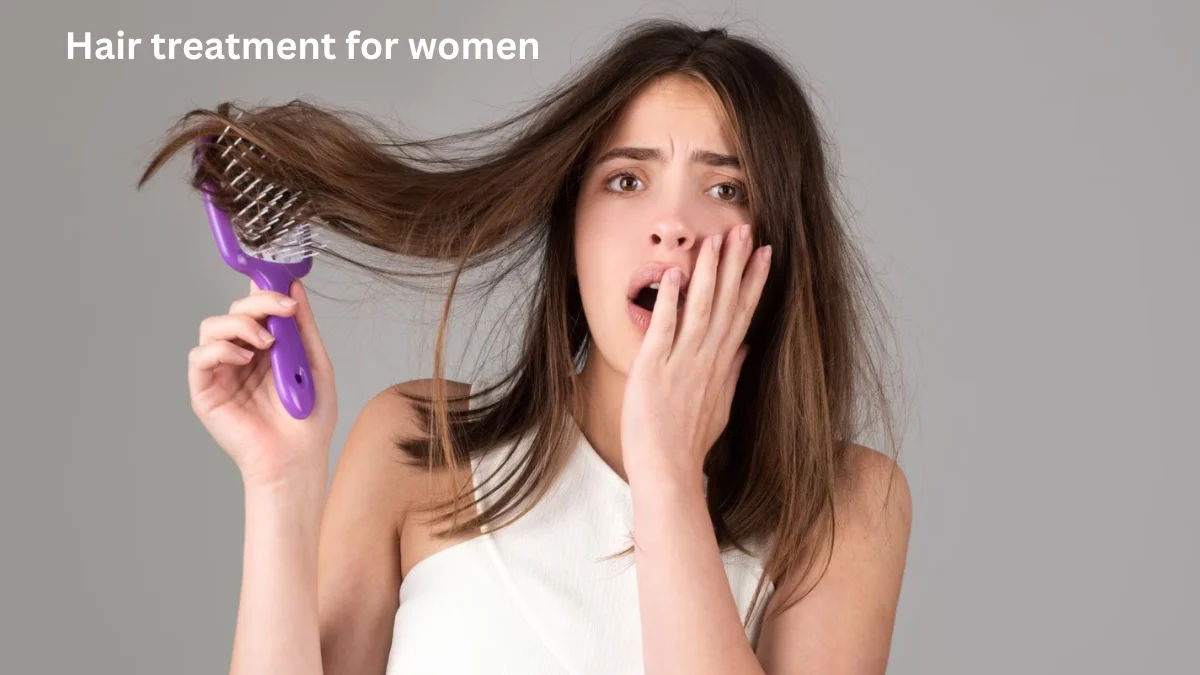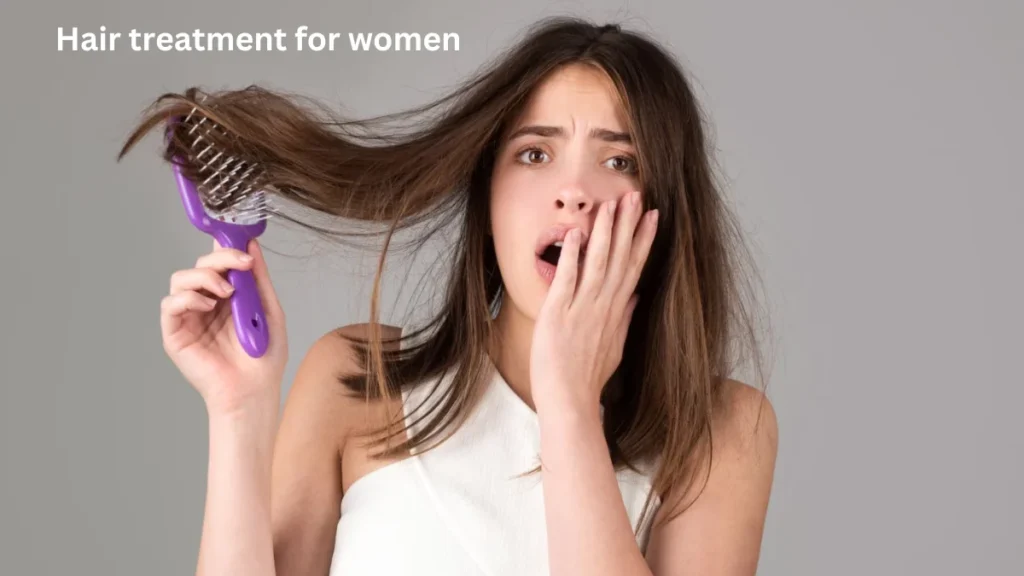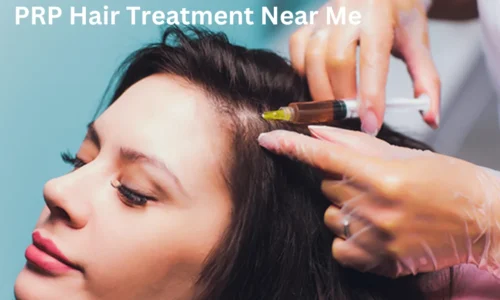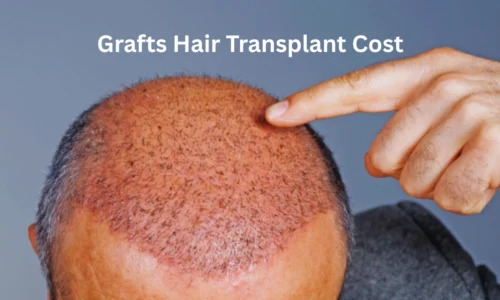

Hair Treatment for Women: Hair health plays a significant role in how we present ourselves, and for many women, achieving and maintaining beautiful hair is a top priority. However, hair issues such as thinning, dryness, and hair loss are common concerns. Fortunately, there are numerous treatments and techniques available to address these challenges. Whether you’re dealing with hormonal shifts, genetic factors, or simply seeking to boost the health of your hair, this guide will walk you through the most effective hair treatments for women.
Book Your Consultation Today
Visit Dr. Hanan Dermatology Specialty Clinic in Padur, OMR, Chennai. Schedule your consultation today and start your journey to fuller, healthier hair.
For more information and to book your appointment, visit our clinic or call us at the clinic’s contact details.
Common Causes of Hair Problems in Women
Understanding the root causes of hair problems is the first step in finding the right treatment. Several factors contribute to hair issues in women:
- Genetic Factors: Female-pattern hair loss, also known as androgenic alopecia, is a hereditary condition where hair gradually thins, typically around the crown or top of the head.
- Hormonal Changes: Pregnancy, menopause, and thyroid imbalances can cause significant changes in hair texture, growth, and shedding.
- Scalp Conditions: Eczema, psoriasis, and dandruff can lead to itching, irritation, and hair thinning.
- Nutritional Deficiencies: Lack of essential vitamins and minerals, including iron, biotin, and vitamin D, can weaken hair and lead to excessive shedding.
- Overuse of Hair Products: Frequent use of harsh chemicals, dyes, and heated styling tools can damage the hair shaft, leading to dryness and breakage.
- Stress: High stress levels can contribute to telogen effluvium, a condition where hair falls out in large amounts, often during periods of intense stress or after major life events.
Types of Hair Treatments for Women
Whether your hair concerns are caused by an internal issue or external factors, there is a range of treatments available to help restore your locks.
1. Medicated Treatments
- Minoxidil (Rogaine): One of the most popular treatments for hair regrowth, Minoxidil helps improve blood circulation to the scalp, stimulating hair follicles and promoting regrowth. Available over the counter, it’s suitable for both thinning and bald spots.
- Platelet-Rich Plasma (PRP) Therapy: In this procedure, your blood is drawn and processed to concentrate the platelets, which are then injected into the scalp to stimulate hair follicle regeneration. PRP therapy has shown promising results in improving hair thickness.
- Topical Corticosteroids: These are prescribed for scalp conditions such as eczema and psoriasis, reducing inflammation and helping to restore hair growth.
- Prescription Medications: Medications like finasteride (for post-menopausal women) can be prescribed for hormone-related hair loss, while others target autoimmune diseases affecting hair growth.
2. Natural/Herbal Treatments
- Essential Oils: Rosemary, lavender, and peppermint oils are popular for their ability to stimulate hair follicles and promote growth. Massaging these oils into the scalp may improve circulation and hair health.
- Aloe Vera: Aloe vera has soothing and moisturizing properties, which can calm irritated scalps and prevent hair breakage.
- Coconut Oil: Rich in fatty acids, coconut oil nourishes the hair, preventing dryness and damage while supporting overall hair strength.
- Castor Oil: Known for promoting hair growth, castor oil is rich in ricinoleic acid, which helps improve circulation to the scalp.
3. Hair Supplements
Hair supplements are designed to boost the health of your hair from the inside out:
- Biotin: A popular B-vitamin, biotin supports hair growth by strengthening the hair shaft and preventing breakage.
- Collagen: Helps maintain hair elasticity and improves overall scalp health.
- Iron and Zinc: These minerals prevent hair thinning and promote healthy hair growth, especially in women suffering from anemia.
4. Hair Masks and Deep Conditioning
- Hydrating Hair Masks: For dry or brittle hair, moisturizing hair masks can provide deep hydration and restore softness and shine.
- Protein Treatments: For weak, damaged hair, protein treatments help rebuild the hair structure and reduce breakage.
5. Scalp Treatments
- Scalp Exfoliation: Removing dead skin cells and product buildup from the scalp can improve hair health by promoting better follicle function.
- Scalp Massages: Regular scalp massages can enhance blood circulation to the hair follicles, stimulating growth and reducing hair loss.
Cosmetic Solutions for Hair Loss
For women who struggle with more noticeable hair loss or thinning, cosmetic options can provide an instant boost in confidence.
1. Hair Fibers
These small, colored fibers attach to existing hair and create the appearance of thicker, fuller hair. They are a quick, temporary solution for those needing coverage for thinning spots.
2. Wigs and Hairpieces
Modern wigs made from human hair or high-quality synthetic fibers offer an excellent solution for complete hair loss or extreme thinning. These come in various styles, colors, and lengths for a natural look.
3. Hair Extensions
Hair extensions can add length, volume, and fullness to thinning hair. They can be attached using clips, glue, or sew-ins, offering versatile solutions for various hair types.
4. Scalp Micropigmentation
This cosmetic procedure involves the application of tiny pigment dots to the scalp to mimic hair follicles. It’s ideal for women with extensive thinning at the front or crown of the head.
5. Thickening Sprays and Powders
Volumizing sprays and powders are an easy, on-the-go way to add fullness to your hair. These products coat individual strands of hair and create a thicker appearance.
Professional Hair Treatments
For severe hair loss or persistent issues, professional treatments may be necessary.
- Laser Therapy (Low-Level Light Therapy): This non-invasive procedure uses red light to stimulate hair growth by improving circulation and increasing cellular activity in hair follicles.
- Hair Transplant Surgery: In cases of significant hair loss, a hair transplant can be an option to restore natural hair by relocating hair follicles from a donor area to thinning spots.
- Consulting a Dermatologist: A professional dermatologist can diagnose underlying conditions and create a personalized treatment plan tailored to individual hair needs.
At-Home vs. Professional Hair Treatment
While at-home treatments offer convenience and cost-effectiveness, professional treatments are often more powerful and targeted for serious hair loss or scalp conditions. If your hair concerns persist despite at-home efforts, it’s a good idea to consult a professional for tailored guidance and treatment options.
Preventive Measures for Healthy Hair
The best approach to maintaining healthy hair is preventive care. Here are some tips to protect your hair:
- Proper Nutrition: Ensure your diet includes essential vitamins and minerals like biotin, iron, and omega-3 fatty acids.
- Avoid Excessive Heat Styling: Limit the use of flat irons, curling irons, and blow dryers to prevent heat damage.
- Regular Hair Trims: Trim your hair every few months to avoid split ends and keep it looking healthy.
- Protect from Sun Damage: Wear hats or use UV protection sprays to shield your hair from harmful sun exposure.
Conclusion
Hair treatment for women encompasses a wide range of options, from topical medications to natural remedies and cosmetic solutions. By understanding the underlying causes of hair loss and choosing the right treatments, women can regain fuller, healthier hair. Whether you opt for professional procedures or DIY treatments, it’s important to be consistent and patient, as healthy hair growth takes time. Embrace a holistic approach combining medical, cosmetic, and preventive care to achieve the best results for your hair.
FAQs
1. What causes hair loss in women?
Hair loss in women can be caused by various factors, including genetics (female-pattern hair loss), hormonal changes (pregnancy, menopause, thyroid issues), stress, nutritional deficiencies, scalp conditions (eczema, psoriasis), and overuse of hair products or heated styling tools.
2. Can hair loss in women be reversed?
In many cases, hair loss in women can be stabilized or reversed, especially when treated early. Medications like Minoxidil (Rogaine) or PRP therapy can promote regrowth. However, results depend on the cause and severity of hair loss.
3. What are the most effective treatments for thinning hair?
The most effective treatments for thinning hair include:
- Minoxidil (Rogaine): Stimulates hair regrowth.
- PRP therapy: Uses your blood’s platelets to promote follicle regeneration.
- Essential oils and natural remedies: Rosemary oil, aloe vera, and castor oil help nourish and stimulate the scalp.
- Hair supplements: Biotin, collagen, and iron can strengthen hair from the inside.
4. Are there any natural remedies for hair loss?
Yes, several natural remedies may help with hair loss, including:
- Essential oils (rosemary, lavender, and peppermint) for stimulating hair follicles.
- Aloe vera to soothe the scalp.
- Coconut oil for deep hydration.
- Castor oil for promoting hair growth. However, the effectiveness of these remedies varies and may work best in combination with other treatments.
5. How long does it take to see results from hair treatments?
Results from hair treatments vary depending on the type and severity of hair loss. For treatments like Minoxidil, visible results may take 2-4 months of consistent use. PRP therapy can show improvements within 3-6 months. Patience is key, as hair growth cycles take time.
6. Are there any side effects to using hair growth treatments?
Some treatments, such as Minoxidil, may cause mild side effects like scalp irritation, dryness, or itching. PRP therapy may cause temporary discomfort at the injection site. It’s important to consult a dermatologist or healthcare provider before starting any treatment to ensure it’s suitable for your condition.
7. What are the cosmetic options for covering hair loss?
Cosmetic solutions for covering hair loss include:
- Hair fibers to temporarily add volume.
- Wigs and hairpieces for complete coverage.
- Hair extensions to add length and fullness.
- Scalp micropigmentation to create the appearance of fuller hair.
8. Is it possible to prevent hair loss in women?
While some hair loss is genetic and inevitable, it’s possible to reduce the risk of excessive hair loss by maintaining a healthy diet, avoiding heat styling tools, limiting chemical treatments, and managing stress. Regular scalp care and gentle handling of hair also promote healthier hair growth.
9. When should I consult a dermatologist about hair loss?
If you’re experiencing significant hair thinning, bald patches, or if over-the-counter treatments aren’t effective, it’s time to consult a dermatologist. A professional can identify the cause of hair loss and recommend the most effective treatments tailored to your needs.
10. Can hair loss be linked to other health conditions?
Yes, hair loss can sometimes be a sign of underlying health issues such as thyroid disorders, autoimmune diseases (like lupus), or iron deficiency. If hair loss is sudden or accompanied by other symptoms, it’s important to seek medical advice to address any potential health concerns.



